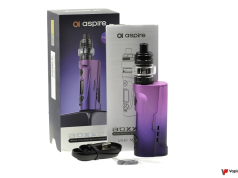Estimated to be worth $67.31 billion by 2027, the vape industry is still shrouded in doubt and suspicion. To this effect, this event brought together public health officials, chemists, consumer groups as well as manufacturers to join in the conversation about the products.
In February 2019, the UAE Government consumer watchdog ESMA (the Emirates Authority for Standardisation and Metrology), had confirmed that new regulations would allow the legal sale of e-cigarettes and vaping products. This was followed by an announcement from the Dubai Municipality saying the use of the devices, would be subject to the same laws as smoking.
The region’s largest vaping trade event
The implementation of such regulations, have paved the way for the region’s largest vaping trade event to be held in Dubai, the first of which took place last year. “Before April, it was against the law for retailers in the UAE to sell e-cigarette products but now there are huge opportunities for both manufacturers and retailers to take advantage of,” said Steve Diprose, managing director at Quartz Business Media, who were the organizers of the World Vape Show.
Among the speakers at this year’s event, there were South African Kurt Yeo, a former two-packet-a-day smoker who quit via vaping and co-founded Vaping Saved My Life, a tobacco harm reduction advocacy group, tobacco giant Phillip Morris International’s (PMI) VP for Global Scientific Engagement, Dr Gizelle Baker, and Joe Dunne, director of Hale Vaping, a major vape brand in Ireland.
“Millions of adults have already benefited by switching from smoking to vaping or are on their way to doing so,” said Dunne. He added that vaping products are among the most significant public health innovations in modern times and have “the potential to render the cigarette obsolete, and end the worldwide epidemic of smoking-related disease”.
Local regulations
Meanwhile, in what is a measure intended to ensure that the local economy benefits from the legalization of e-cigarettes, last year the Federal Tax Authority (FTA) announced that vaping and heated tobacco products must bear the local digital tax stamp (DTS) in order to be allowed locally.
The DTS system helps the FTA “improve its ability to collect excise tax charged” on such products on being imported or manufactured locally. It also enables “stakeholders to analyse the supply chain to better control illicit tobacco products,” added the tax authority. Moreover, it facilitates the implementation and adherence to compliance standards.












